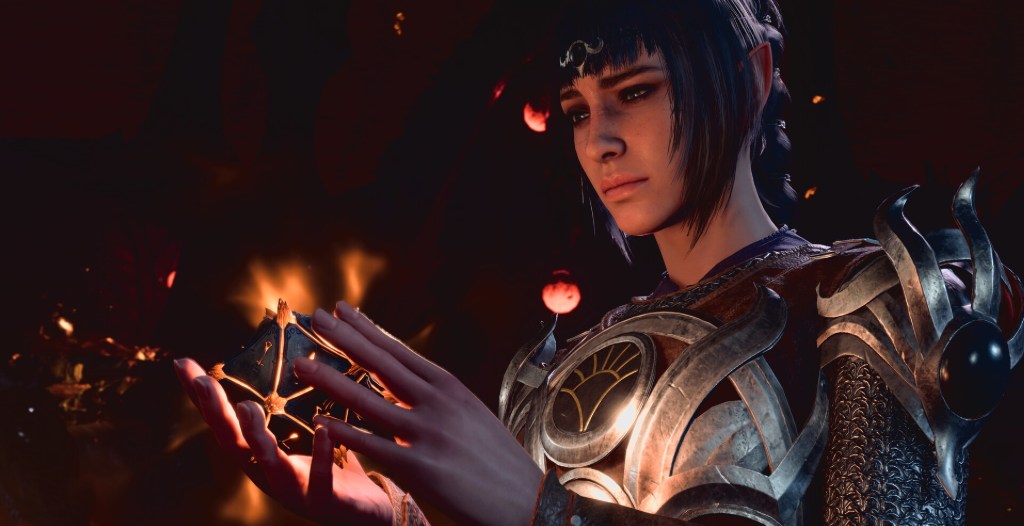College basketball, as with anything that depends upon the decision-making capabilities of 20-year-olds, tends toward chaos. There is nothing quite like the final minutes of a close conference tournament game because the moment is threatening to subsume its participants, who are trying like hell not to swallow their tongues while also attending to their defensive assignments. A gawky freshman point guard dribbles at the top of the key, initiating the offense, but also, it seems, remembering all over again how to inhabit his body. Arms go here, legs go here, and—whoops! The ball is off his thigh and rolling toward the sideline. In the background, an aggrieved man in a suit balls his fists at his temples. The point guard winces, because he might have just doomed his team and because he knows he’s about to be harangued by the be-suited man during the next timeout. It’s difficult to discern which prospect troubles him more.
This is college basketball’s central dynamic: the coach wanting the player to Do It Right, and the player usually falling short of that, in ways that are often more interesting and dramatic than if he had executed exactly how it was drawn up on the locker room whiteboard. But coaches don’t appreciate drama. They want perfection, or at least to be up by a comfortable margin heading into the stretch. This can make them look like spectacular point-missers, but they would probably argue they’re just focused on a point the rest of us can’t see.
Videos by VICE
Read More: Despite All His Rage, Tom Thibodeau Is Still Just a Rat In a Cage
Mike Krzyzewski got his 1,000th collegiate win on Sunday afternoon, and well, there are things that can be said about that. It’s a great achievement, obviously. It speaks to his ability to organize young talent in a way that produces just a staggering amount of victories, and also to the quality of talent he brought to Duke over the years. For all his arrogance, it’s hard to imagine Coach K not readily admitting that a coach’s job is made a lot easier by having players like Shane Battier and Grant Hill, Jay Williams and Jabari Parker, that those two gold medals he has are owed more to LeBron James and Kevin Durant than to his tactical genius.
But that feels like all he might concede, doesn’t it? Krzyzewski is an arch-authoritarian, but he is also a true believer in the necessity of authority. It takes a bona fide drill sergeant to make Dean Smith seem like a hippie. Coach K’s Duke teams have always been defined by the order he imposed upon them. He has been remarkably strategically flexible—think of all the different kinds of great players he has had over the years, and how he built his teams around them—but also has never brooked a player who wouldn’t defer to him. John Calipari was willing to tussle with Boogie Cousins. Jim Boeheim put up with Derrick Coleman’s mood swings. Coach K probably would’ve parked both their butts on the bench, and anyway, the point is moot because he doesn’t sign difficult artist types. (Yes, Krzyzewski coached Boogie on Team USA, but Team USA ain’t Duke.)

“One thousand wins tho.” Image by Anthony Gruppuso-USA TODAY Sports
Nick Saban might be a god in Tuscaloosa, but he is ultimately contributing to a tradition that dwarfs him. Phil Jackson nabbed five titles with the Lakers, but he had nothing to do with the West, Kareem, or Magic eras. Duke wasn’t some fledgling basketball school when Coach K showed up in 1980. They had won conference championships and made deep NCAA tournament runs. Krzyzewski’s success has been so immense and so persistent that it has cast all previous success into the deepest recesses of memory. (The same is true of some of his contemporaries. Boeheim and Jim Calhoun come to mind.) Coach K is Duke, and he will continue to be long after he’s gone.
You must be doing something right in order to become synonymous with a school’s basketball history. Perhaps this is what draws ire like nothing else: Krzyzewski is a grim taskmaster who gets results. That he whips young so-and-sos into shape with such adroitness is an affront to those who think the young so-and-sos could stand to be allowed to express themselves a bit more. He is, as much as any of his peers, the prototypical man in a suit balling his fists at his temples, the man who is driven to near-insanity by his players’ imperfections. And yet. there is ample evidence that his demanding exactitude—his peevish passive-aggression, his Republican aristocrat-dad rage—works.
This is not to say one must tip their cap to Krzyzewski. Double-birds will suffice. But your hatred is irrelevant to him. Why wouldn’t it be? 1,000 wins and counting grants you the right to not care about competing philosophies. Coach K will always be the ultimate hard-ass, chewing out his freshman point guard for dribbling the ball off his thigh. It’s not blind faith that guides this aggro anal retentiveness. It’s decades of evidence.
More
From VICE
-

Screenshot: Reddit -

Screenshot: UEL -

Screenshot: Larian Studios -

Jessica Campbell / Seattle Kraken / X.com